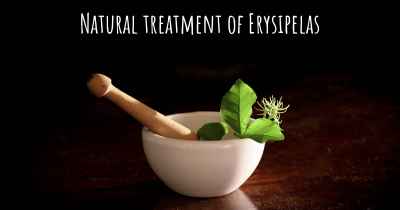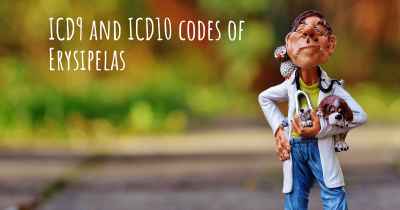Erysipelas diet. Is there a diet which improves the quality of life of people with Erysipelas?
Are you aware of a diet that can improve the quality of life of people with Erysipelas? Is there a diet that is suggested to avoid when having Erysipelas? See if there is a diet that can improve the quality of life of people with Erysipelas, recommended and to avoid food when having Erysipelas

Erysipelas Diet: Improving Quality of Life
Erysipelas is a bacterial skin infection that causes redness, swelling, and pain. While medical treatment is essential, adopting a healthy diet can play a significant role in improving the quality of life for individuals with erysipelas. A well-balanced diet can boost the immune system, reduce inflammation, and promote overall healing. Here are some dietary recommendations to consider:
1. Anti-inflammatory Foods
Include foods that have anti-inflammatory properties in your diet. These can help reduce the swelling and discomfort associated with erysipelas. Some examples of anti-inflammatory foods include:
- Fatty Fish: Salmon, mackerel, and sardines are rich in omega-3 fatty acids, which have potent anti-inflammatory effects.
- Leafy Greens: Spinach, kale, and other leafy greens are packed with antioxidants and can help reduce inflammation.
- Turmeric: This spice contains curcumin, a compound known for its anti-inflammatory properties. Consider adding turmeric to your meals or consuming it as a supplement.
- Berries: Blueberries, strawberries, and raspberries are rich in antioxidants that can combat inflammation.
- Extra Virgin Olive Oil: Use olive oil as your primary cooking oil. It contains oleocanthal, which has anti-inflammatory effects similar to ibuprofen.
2. Immune-Boosting Foods
Strengthening your immune system is crucial when dealing with erysipelas. Incorporate the following immune-boosting foods into your diet:
- Citrus Fruits: Oranges, lemons, and grapefruits are high in vitamin C, which can enhance immune function.
- Garlic: Garlic has antimicrobial properties and can help fight off infections. Include it in your meals for added flavor and health benefits.
- Yogurt: Probiotics found in yogurt can support a healthy gut microbiome, which plays a vital role in immune function.
- Almonds: These nuts are packed with vitamin E, which is essential for maintaining a robust immune system.
- Green Tea: Green tea contains antioxidants that can enhance immune function and promote healing.
3. Hydration
Staying hydrated is crucial for overall health and can aid in the recovery process. Drink plenty of water throughout the day to flush out toxins and keep your skin hydrated. Avoid excessive consumption of sugary beverages and alcohol, as they can impair immune function and worsen inflammation.
4. Nutrient-Dense Foods
Ensure your diet is rich in essential nutrients to support healing and overall well-being. Include a variety of fruits, vegetables, whole grains, lean proteins, and healthy fats in your meals. These foods provide the necessary vitamins, minerals, and antioxidants your body needs to fight off infections and promote skin health.
5. Foods to Avoid
While certain foods can be beneficial, others may exacerbate inflammation and hinder the healing process. Limit or avoid the following:
- Processed Foods: These often contain unhealthy fats, excessive sodium, and additives that can promote inflammation.
- Sugary Foods and Beverages: High sugar intake can weaken the immune system and worsen inflammation.
- Refined Grains: White bread, pasta, and rice lack essential nutrients and can contribute to inflammation.
- Trans Fats: Found in fried and processed foods, trans fats can increase inflammation and impair immune function.
- Alcohol: Excessive alcohol consumption can weaken the immune system and delay the healing process.
Remember to consult with a healthcare professional or registered dietitian before making any significant changes to your diet, especially if you have underlying health conditions or are taking medications.
By adopting a diet rich in anti-inflammatory and immune-boosting foods, staying hydrated, and avoiding inflammatory foods, individuals with erysipelas can improve their quality of life and support the healing process. A healthy diet, in conjunction with medical treatment, can contribute to a faster recovery and reduce the risk of recurrent infections.








